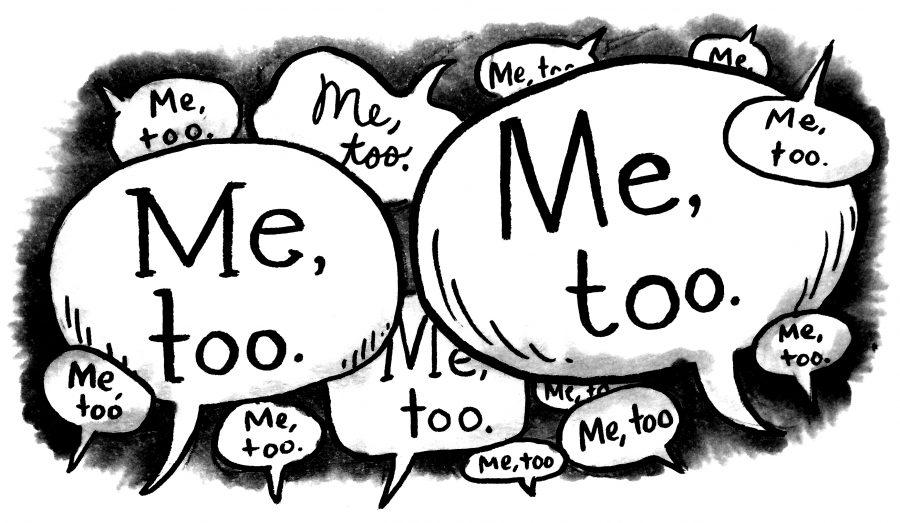Another actor’s face appears under headlines that contain roughly the same string of words: “allegations,” “sexual harassment,” “accusations.” Reporters ride the wave of momentum generated by the #MeToo movement, and everyone collectively takes to Twitter to share their 280-character opinion. As we navigate the Golden Globes high — thanks in part to Oprah’s powerful declaration that time is finally up — we need to take a moment to assess our individual experiences as university students and make an extra effort to bring about change at the local level before we lose the momentum.
This week, it was a story on Aziz Ansari that sparked yet another heated debate about what, exactly, constitutes sexual assault. Exasperation contributes more heavily to the outrage, and people are right to be outraged — every news story seems to bring another politician, actor or public figure into the spotlight. The fatigue itself is placing our progress in danger. Those of us who are tired of the system of victim blaming, those who recognize that the problem isn’t just the Harvey Weinsteins but an entire culture replete with microaggressions and forced silence, have to recognize the importance of action at the local level.
Universities play a large role in defining and combating sexual misconduct. Last spring, UT published a report outlining the prevalence and perception of sexual harassment and violence experienced by Longhorns, finding that 28 percent of undergraduate women reported themselves as victims of sexual assault at the time of the study. It is important to recognize that it is not the job of victims to fix the problem, and it is critical for all of us to use the momentum from the media spotlight for introspection and action.
Students of the University, equipped with their own talents and experiences as up-and-coming leaders, have the resources to work for change. Changing a culture begins at the local and individual level, and the University has many opportunities for students to get involved. For example, students can invest their time in a student organization like Voices Against Violence, a violence prevention and response program affiliated with the UT Counseling and Mental Health Center. Students can also work individually to change the conversation about sexual relationships, whether that comes from personal reflection or from opening a dialogue with peers who share their concerns. A couple of personal measures one can take include education and introspection. Conducting research on healthy relationships, such as exploring exactly what consent means, and speaking with friends about their experiences and expectations, will help students improve their understanding of the problem.
This is a moment for conversation. More importantly, this is a critical moment for action. Because this is a problem that is pervasive in every industry, university students have a large stake in the drive for change. Students play a large role in redefining the way we interact and must take part in the movement to ensure lasting progress. Whether it be making a personal change or becoming actively involved in an organization like VAV, joining a committee or running for a position in Student Government, sharing your story or calling out injustice when witnessed on or off campus, we must harness this momentum and set an example as a community of empowered young leaders.
Severe is a business honors and finance junior from Round Rock. Follow her on Twitter @EmilySevere





















